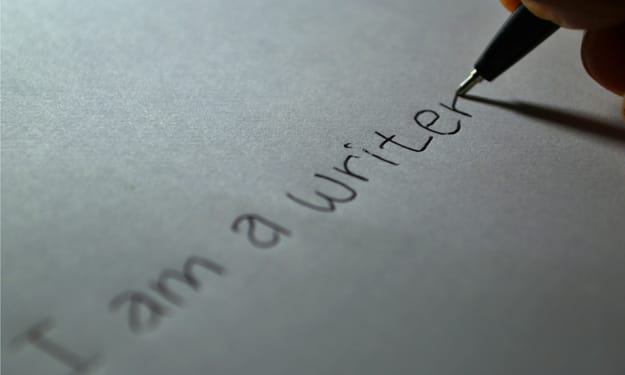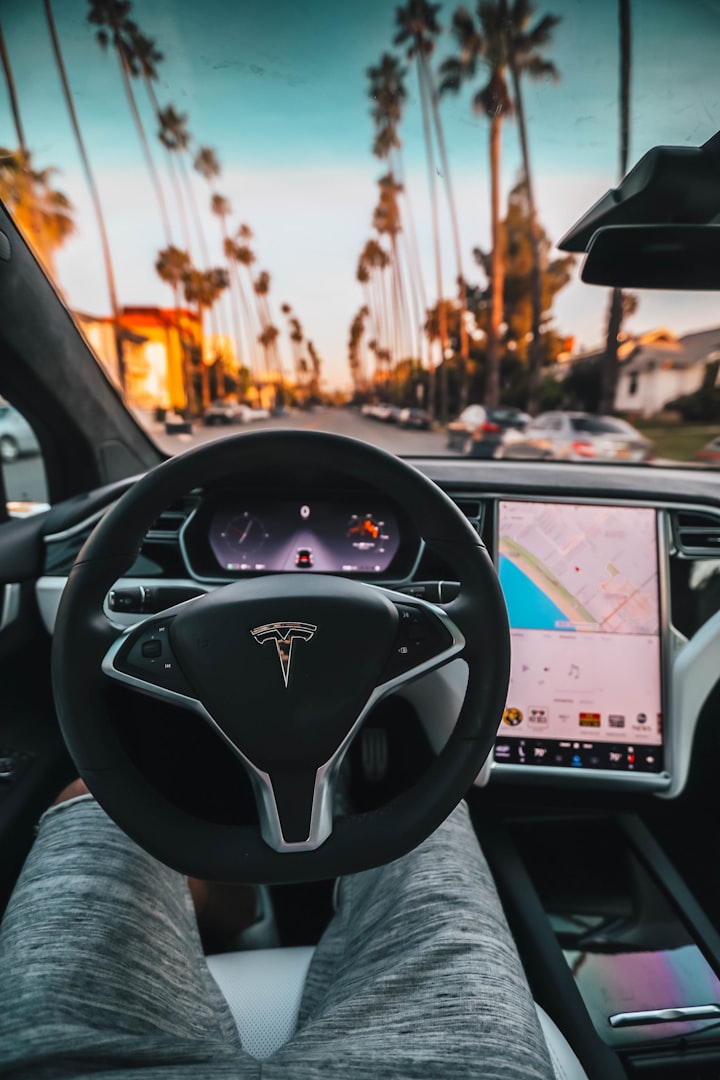Let Black Girls and Women be Normal
The Diary of an Exhausted Black Woman

I didn't grow up around other black people. The only people of color I knew were my mom, two brothers, a girl from school, and two childhood friends.
I remember growing up with this incessant desire for more of my culture, and people who looked like me. I wanted black friends, to be close to my black family, and to really understand being a black woman and what that meant. The problem is, the only things I really knew about black women and black people, was all the slavery and civil rights stuff I learned in my predominantly white school, in a predominately white city, nestled snuggly in a very white state. Oh, and let's not forget the slew of black stereotypes plastered in every media ever invented.
Don't get me wrong, there are truths to every stereotype and some people fit the bill without thinking much of it. Living as a black woman, however, you either are the stereotype or you aren't black. At least, that's how all the white kids made me feel about it.
From the time I was 13 and old enough to begin to grasp that through the eyes of the world, my identity was melded with my melanin, my interacting with others and myself began to change.
Random groups of girls at school would mockingly call me "sister" or "sista," people would always ask if I was related to every other black person that they knew and I felt this suffocating pressure by the time I was through my senior year to "act black." The only problem was, I never knew what that meant. People seemed to like me better when I supposedly acted black and my mother would always say things like, "You aren't one of these little white kids so stop acting like it."
Thus started the fascination with black culture.
A strange notion to suggest because, after all, I am indeed black. So, it didn't make sense, but here I was, absorbing every image of black people on tv. It started, I believe, with Jump In, a Disney Channel movie starring Keke Palmer and Corbin Bleu about a double dutch competition.
I was obsessed with Keke, I wanted to be just like her because she was a black girl around other black girls and that's how I was supposed to act. I begged and pleaded, hoping anyone, anywhere in the place I lived knew how to double dutch. To my dismay, I never learned to double dutch, but I downloaded Keke Palmer's album and began revamping the identity I hadn't event fully developed yet.
Next, came hair. Now, if you know, you know, so I won't dive into too much detail. Hair is huge within the black community. From little girls to grandmas, even the men are in on the hair game. After years of perms, and fried hair, I finally had my first set of box braids.
I felt so beautiful. I could finally have long hair like the other girls at school. The best part about braids was that I could achieve almost any look I wanted. I was ecstatic and growing up with 98% of your peers being white, I never thought anything of it when I was constantly questioned about my hair. "Is it real?" "How long does it take?" "How do you do that?" I thought it was just part of life.
Skip to my second official year in college. A time of rebirthing I guess you could say.
I had endured another painful and unexplained heartbreak and it was time for another identity makeover. After experiencing racism from boys in middle school telling me they'd date me if only I wasn't black and enduring a horrendous battle with the parents of my first boyfriend because they couldn't stomach the thought of their son being with a black girl, this most recent heartache was near earth shattering for me.
Ir was only second real relationship and luckily didn't end due to any race issue, but I was stuck at a school forced to watch him cater to another girl the exact way I asked to be treated, only to be conistently shot down by him. Though race was never an issue for my relationship ending, it would forever be an issue in question for every failure I couldn't understand.
For years afterward I couldn't shake the nagging thoughts in the back of my mind, "did this happen because I'm black? Did he only want to sleep with me because I'm a black girl? Do my friends keep leaving because I'm black?" Whether it made sense or not wasn't the problem. The problem was that every relationship from that point on became a stomping ground for my identity and my blackness.
I decided to start some kind of change by learning to embrace my natural hair and my blackness. I told myself I would never perm my hair agian and I would learn to take care of my hair and myself this time around. I was finally on the right track to becoming a real life black girl, but braids and afros only took you so far. I needed other black people in my life.
The only good thing about living in a predominately white state, with a small population, is that they are completely obsessed with school sports. That being said, they wanted who they thought to be the best on their teams. Que the recruiting of black teens and young adults to play for college teams.
You'd think that would have opened a door for me to make friends with people who looked like me. Instead, I felt ostracized almost immediately.
When the black guys weren't propositioning me to be their convenient, temporary sex piece, they were openly mocking me for dating white guys and I could never for the life of me get on any common ground with any of the other black girls. It was lonely and frustrating. I wasn't black enough for the other black people either.
It wasn't until I moved home again in 2017 and , went through a wreckless. promiscuous phase for a full year, did I realize that who I was was not directly tied to my blackness.
A quarter life crisis was in the works.
How was I supposed to be who I knew myself to be without centering my identity around being black? Everywhere I looked black women were always the sassy, victimized, angry, bitter character who either resonated rachet energy or were stuck up. They served as comic relief like clowns in the hall of the king or the tragic protagonist with a traumatizing back story that forced them to be strong and work harder than anyone else in the history of ever.
It was hard for me to fathom that my blackness and my identity as a person could live harmoniously without portraying some preconcieved idea that had been etched into the minds of every living person with access to television and the internet
So, I made the decision to allow myself to exists without borders and somewhere along the road, my melanin became my sister, my shadow that only grew more visible in the light. I learned to coexist with who I was as a human being and tethered it to the realities of being a black woman.
Now the second part of life could begin. I could finally just be myself and live, exist in the world that was created for life.
Or so I thought.
The struggle continued. Day after day it became lonelier and lonelier because the reality of the situation was, black girls and black women were not allowed to just be normal. It made people uncomfortable.
Changing my hair became an unsolicited invitation to educate curious minds every few minutes. A daunting task because it was the same questions from the same people. None of whom were willing to learn or be helpful in any way. Speaking became some grand achievement where I was always complimented on how articulate and well spoken I was as if having English as my native tongue was something to be celebrated.
Then, I stumbled into the world of Tik Tok and I realized, I was not the only black creator out there feeling cheapened by the world around us. Many of them, often authors and artists are plagued with these societal restraints that tell us, "No, black people cannot be like everyone else."
We aren't allowed to be the Harry Potters, Daphne Bridgertons and the Stan Lee's of the modern world because the modern world is trapped in a black and white pre civil rights era. They've boxed themselves into believing the gang bangers and projects narrative is consistent for everyone with dark skin.
For some reason, we aren't allowed to be the stars of the show without having a deeply tragic back story of rape, incestuous pregnancies, gang violence or single parenthood. We're told that we aren't interesting if we aren't confined to the chains of how we are portrayed in the media. We're given constant confirmation that no one will look our way if we rise above the booming noise of the cardboard-cut-out stereotypes that others want us to live in.
Let us just be normal.
We want to be the main character in not only our own stories, but the stories that the world sees. We want to fight dragons and be fairies. We want to be super heros and villians, princesses, princes, detectives and crime fighters. We want to be heroes, to fall in love and have big dreams. We want to listen to all sorts of music generes, cosplay and watch anime. We want mom friends to drink wine with and take our kids on play dates. We want to start busninesses. We want to own things and have assets, but most importantly, we just want to be seen as human beings without preconceived stereotypes put upon us.
I can't say that I speak for all black people but from the countless stories I've heard, I'm not alone.
It's time for the world to figure out how to let black people exist without borders. Let us just be normal and celebrate our culture and hertiage on our own terms. It's not for anyone else to decide what role we play except for our own. So enough with the sassy black woman for comic relief, the played out kid from the hood who makes it through hard work at sports trope and just let us live the way that everyone else is allowed to live. Let us adventure, let us have fun. Let us be normal.






Comments
There are no comments for this story
Be the first to respond and start the conversation.